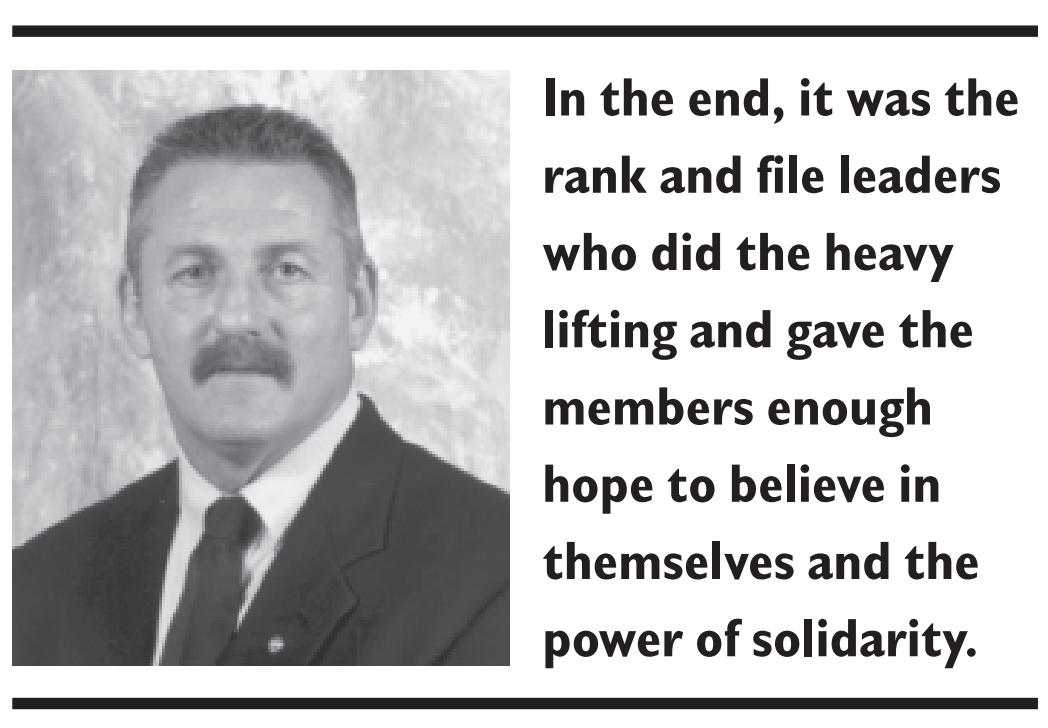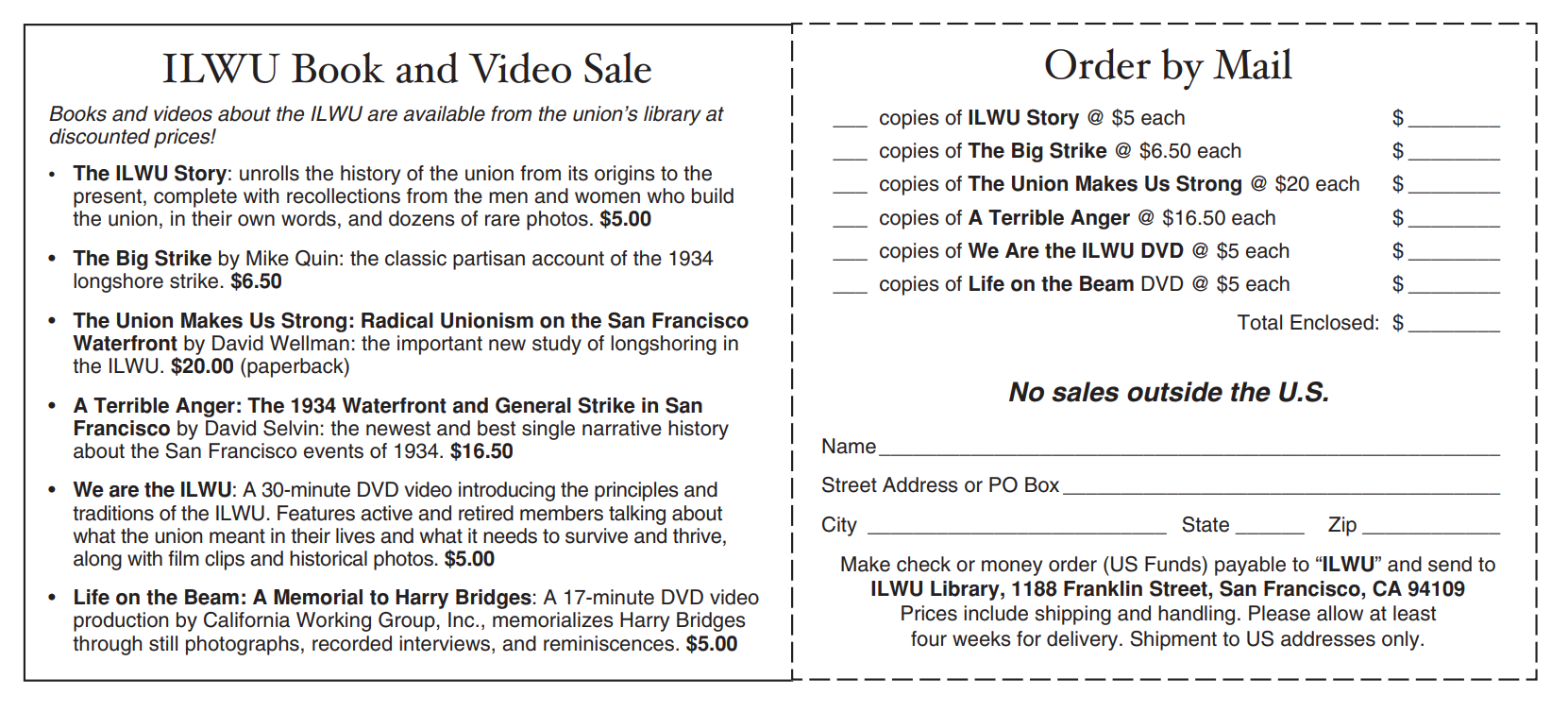I’ve been thinking about the 300 sisters and brothers from Local 6 who gave up their pay checks in July to honor the Teamster picket lines at Waste Management. I read the article about their fight in the last Dispatcher, and it made me wonder if we really appreciate what those workers accomplished—and what it means for the future of our union.
To begin with, you can’t say enough about the courage and strength they showed in dealing with a big, powerful employer. Waste Management is as tough as they come, and you know the company was just itching for a fight. Just remember that they locked out the Teamsters only one day after the contract expired.
In the end, the company got more trouble than they bargained for, because this group of 300 workers who were mostly women, mostly lowpaid, and mostly Spanish-speakers, decided to stick together and walkout in support of their co-workers.
My point is that there were plenty of chances for divisions to break out between the workers. It could have been between the lower-paid and higher-paid workers, between the men and the women, between different racial groups, folks who spoke different languages, or between all the different unions that were involved-the Teamsters, ILWU, and Machinists. But in the end, everyone realized that sticking together was the only way to make progress.
And that’s not the whole story. From the beginning, there were workers who were afraid, and they had a right to be. They wondered how long they could go without a paycheck to cover the rent, buy groceries, or make car payments. And you can be sure there were folks who were hesitant to support the drivers; maybe because the drivers were better paid or spoke a different language or belonged to a different union. They probably wondered if the Teamster drivers would ever walk out to support the recyclers or clericals if the shoes were on the other feet.
That’s the real world. And in the real world those fears and concerns have to be addressed head-on. And the only ones who can really do it are the rank and file leaders. Union officials can help, and they did a great job at Local 6. Throughout the union, ILWU locals sent checks— some of them very large checks—to help the Local 6 workers win their fight. Some individuals came forward with their own personal checks, and dozens of community members did the same. But even the $100,000 that was eventually donated to Local 6 didn’t go that far when it was divided between 300 workers and spread out over four weeks of hardship.

Many of you reading this think that honoring picket lines is second nature, and you’re right. It’s a sacred duty and the bedrock of our belief system. The slogan, “an injury to one is an injury to all,” is something like the gospel in our union.
But as important as slogans and principles are, we have to be honest with ourselves: it’s one thing to talk about solidarity when we’re relatively comfortable and well-off, but it’s different when there isn’t enough food on the table, the kids are hungry, there’s nothing left in the checking account, and the car is about to be repo’d. That’s when our resolve is tested and the word “solidarity” takes on a whole new meaning.
Most of us who work in Longshore haven’t had to worry about putting food on the table for a very long time. We drive nice cars and most of us own our own homes. We have to look back almost an entire generation to remember any truly “hard times” when we had to worry about the basics. We know that our lives are better today because of the sacrifice of those who came before us, but we haven’t been challenged in the same way as that generation.
But all of us will be tested in the months and years ahead. Longshore workers have a contract fight coming next summer, and we hope it goes smoothly—but we have to be prepared for a fight if it doesn’t. And that fight could involves sacrifices.
Outside of Longshore, it’s a whole different world where union membership is dropping, wages are falling, benefits are being cut, and working families are generally taking it on the chin.
The challenge for the ILWU is to build on our success where we have power, then use that strength to help other ILWU workers win better contracts, and help workers without a union to win their fight to have one. All this will take a lot of resources and hard work, but in the end, I think it comes down to two things: whether we learn the lessons that Local 6 members just taught us about solidarity and sacrifice, and whether we can develop the next generation of rank and file leaders who can help us win the battles ahead for the ILWU and for working families in America.
An injury to one is an injury to all. ◆

